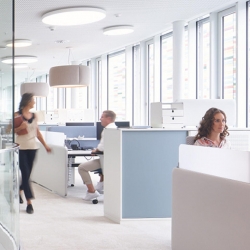July 2, 2015
Employees prefer diverse working experiences to traditional career ladder
 Employees value a varied working experience and flexibility over traditional, linear career progression, a global study published by the Top Employers Institute claims. The Career & Succession Management Report identifies the global developments forcing employers to rethink career and succession management strategies. These include skill shortages resulting in a global competition for best talent and an increased risk of losing business-critical knowledge due to the ageing of the workforce. There is also a new generation of workers seeking diverse work assignments and flexibility, who are taking greater responsibility for their own career management, resulting in less loyalty to employers and less interest in the traditional step-by-step climbing of career ladders. The findings suggest that HR needs to move from assuring the smooth succession of leadership to concentrate more on wider long-term staff engagement and retention.
Employees value a varied working experience and flexibility over traditional, linear career progression, a global study published by the Top Employers Institute claims. The Career & Succession Management Report identifies the global developments forcing employers to rethink career and succession management strategies. These include skill shortages resulting in a global competition for best talent and an increased risk of losing business-critical knowledge due to the ageing of the workforce. There is also a new generation of workers seeking diverse work assignments and flexibility, who are taking greater responsibility for their own career management, resulting in less loyalty to employers and less interest in the traditional step-by-step climbing of career ladders. The findings suggest that HR needs to move from assuring the smooth succession of leadership to concentrate more on wider long-term staff engagement and retention.








 We keep saying it but forget all the talk about Gen Y, the UK workforce is actually aging and becoming more diverse. New research from Saga shows that the number of employees over the age of 65 has increased by over a third over the last four years and the numbers of those between 50 and 64 has also increased – by nearly a tenth. The proportion of over 65s within the workforce is up from 3.4 percent to 3.6 percent over the same period but there have also been increases in employment in younger age groups meaning the workforce is more diverse. There are now 1.09 million over 65s still in work and around 8 million in the 50-64 age group.
We keep saying it but forget all the talk about Gen Y, the UK workforce is actually aging and becoming more diverse. New research from Saga shows that the number of employees over the age of 65 has increased by over a third over the last four years and the numbers of those between 50 and 64 has also increased – by nearly a tenth. The proportion of over 65s within the workforce is up from 3.4 percent to 3.6 percent over the same period but there have also been increases in employment in younger age groups meaning the workforce is more diverse. There are now 1.09 million over 65s still in work and around 8 million in the 50-64 age group. 





















November 28, 2024
These are very early days in our relationship with Generative AI
by Jo Sutherland • AI, Comment